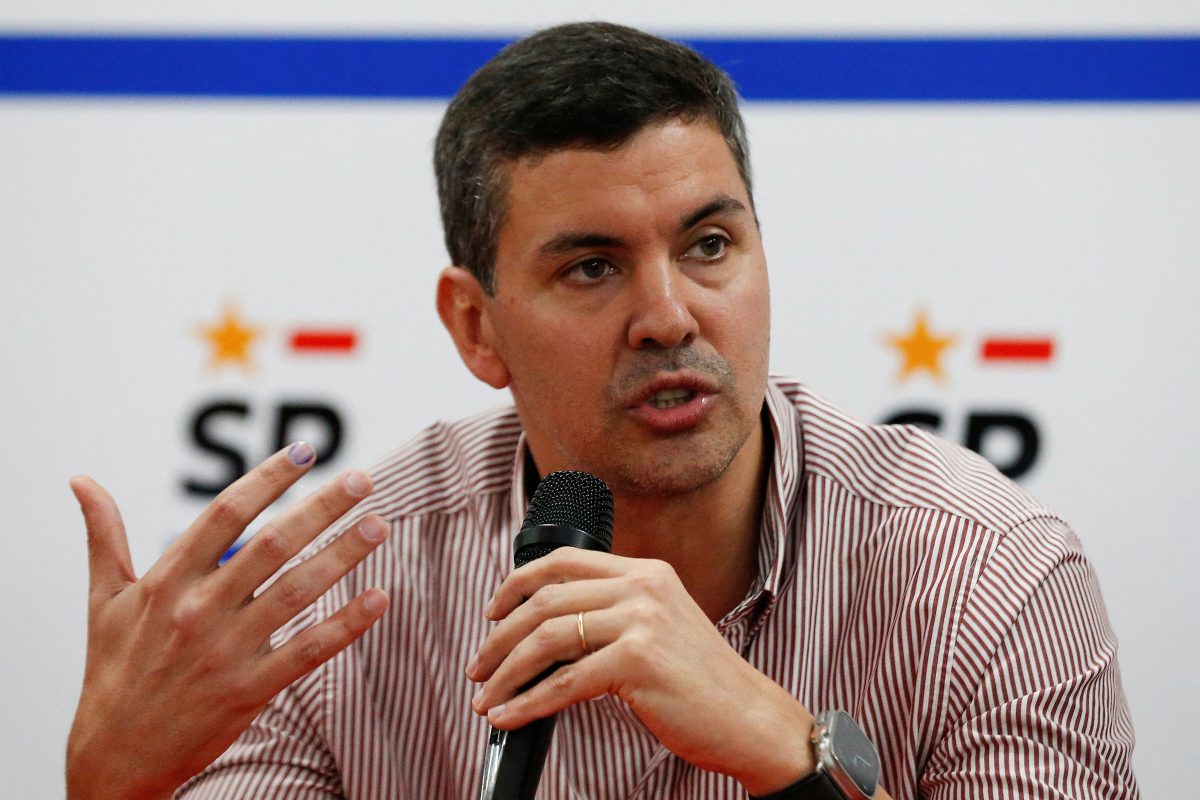ASUNCION, (Reuters) – South America’s Mercosur trade bloc and the European Union should shelve talks over a free trade agreement, with current environmental demands from the EU “unacceptable”, Paraguay’s President-elect Santiago Pena told Reuters.
Pena, who takes office next week, said that the European bloc’s proposals would hinder major soy exporter Paraguay’s economic development. Paraguay is one of the four Mercosur member states along with Brazil, Argentina and Uruguay.
The comments, Pena’s strongest on the trade talks since winning election in April, underscore rising tensions as the European and South American blocs race to finalize a deal, long delayed due to doubts over Brazil’s climate action commitments.
The European Commission, the EU’s executive, said it was “fully committed to push the EU-Mercosur Agreement towards the finish line before the end of the year”.
The South American countries, home to huge swathes of the Amazon, the Chaco forest and key wetlands, are major exporters of soy, corn and beef. They have increasingly pushed back against environmental demands from the EU, saying they amount to European protectionism and would hurt local production.
“This approach from the EU is simply unacceptable,” said Pena, 44, who represents the ruling conservative Colorado party, during a rare interview at his home in Asuncion.
“What the European Union has to do is come clean about whether or not it wants to move forward with a free trade agreement. Today I question whether they have genuine interest.”
Mercosur officials are working on a counter-proposal before meeting with EU negotiators. There are some hopes of reaching an agreement later this year on the trade deal.
“From our point of view, negotiations should be closed and the decision simply made: Do we want this to happen or do we not want this to happen?” Pena added.
The European Commission said its proposals were meant to address sustainability concerns, including on deforestation. It said it was waiting to see alternative ideas from Mercosur.
TAIWAN TIES, STABILITY FOR SOY
Pena, who has always pledged to stand by diplomatic ally Taiwan, a self-governed island claimed by China, doubled down on his supportive position. His government is also hoping for more investment from Taipei.
“These ties are not only friendship but also a conviction that on Paraguay’s path towards an industrialized economy, the model Taiwan has developed can be a great lesson,” Pena said.
Paraguay is the only South American nation left with formal diplomatic ties with Taiwan.
Pena said that he was not planning any new taxes on the agricultural sector, the economic engine in the world’s No. 3 soybean exporter. He said some taxes on international trade could even be eliminated to boost competitiveness.
“Paraguay has to consolidate the model it has today of low taxes to attract investment and create jobs,” he said. “Probably in the future with a more formalized economy… we could think of some adjustments in some rates.”
The president-elect also said current agriculture minister Santiago Bertoni, who has the support of the country’s soybean chamber, had done a “good job” and could remain in office.
Pena added that the previously announced transfer of the Paraguayan embassy from Tel Aviv to Jerusalem would probably take place this year, without giving further details.





